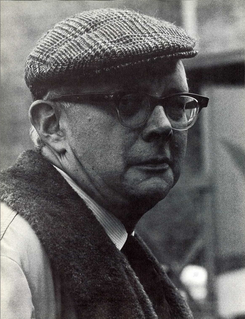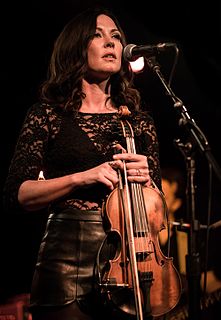A Quote by Michael Dirda
Most lyric poetry is about love, whether yearned after, fulfilled, or wistfully regretted; what isn't tends to consist of laments and cris du coeur over this, that, and the other.
Related Quotes
Speaking of people I had to exclude: Hank Williams. which is to say, songs are part of lyric poetry in my book, my thinking. In fact they are the urgent element of poetry in our time, they carry the most emotion for the most people in our culture. everyone LOVES poetry, because we all love (one form or another) of rock and roll (be it folk to emo to rap). It's all rock and roll and all lyric poetry.
Poems very seldom consist of poetry and nothing else; and pleasure can be derived also from their other ingredients. I am convinced that most readers, when they think they are admiring poetry, are deceived by inability to analyse their sensations, and that they are really admiring, not the poetry of the passage before them, but something else in it, which they like better than poetry.
Could we say that the short short is to other kinds of fiction somewhat as the lyric is to other kinds of poetry? The lyric does not seek meaning through extension, it accepts the enigmas of confinement. It strives for a rapid unity of impression, an experience rendered in its wink of immediacy. And so too with the short short.
I have the idea that lyric poetry is a poetry that's driven by a sense of the presence of death. That there's something unbearable about the fact that we're going to die and that we can't stand it and I think you find that out in childhood and you don't really - at least I found it out in childhood and I found it hard to get over.
If we think about folk forms, they belong to disenfranchised people, people who have not been allowed access to the poetry of literature or the leisure time that comes with the pursuit of poetry. Instead, this is ceremony. This is a highly charged way to create a sacred space that isn't necessarily about God, but is about human experience at its most profound levels - whether that's love or grief, separation, or homeland. All are altered states.
Poetry of all the forms of literature I think is the most suited for the digital age and for the shorter attention spans and all of that. It Twitters very easily, some lyric poems and it's very easy to zip a poem to someone, so that's one of the things I think is wonderful about poetry in the digital age.
No one can threaten poetry. It's always been there, always will be. Humans need it to live: it has sustaining powers. How could we (anyone) get through adolescence without some form of song? Song is only a version of lyric poetry that is carried more by melody than by internal coherence and unity. but lyric and song - they are the same.
I have come to believe over and over again that what is most important to me must be spoken, made verbal and shared, even at the risk of having it bruised or misunderstood. That the speaking profits me, beyond any other effect....what I most regretted were my silences. Of what had I ever been afraid? ...Death on the other hand, is the final silence...my silences had not protected me. Your silences will not protect you.



































